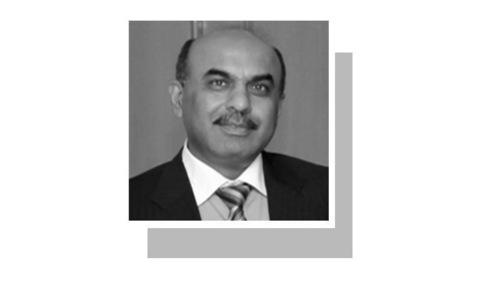 For the first time in 15 years the British economy has ground to a halt, according to the latest official statistics. The Office for the National Statistics (ONS) says the zero per cent growth figure between April and June 2008 was down from an earlier estimate of 0.2 and lower than the 0.3 per cent growth recorded in the last quarter of last fiscal year.
For the first time in 15 years the British economy has ground to a halt, according to the latest official statistics. The Office for the National Statistics (ONS) says the zero per cent growth figure between April and June 2008 was down from an earlier estimate of 0.2 and lower than the 0.3 per cent growth recorded in the last quarter of last fiscal year.
The negative impact of global pressures such as high commodity prices and the continuing credit squeeze among other factors seem to have accelerated economic downturn in the UK.
The ONS figures showed that the services sector, the backbone of the UK economy, grew just 0.2 per cent, while manufacturing output fell by 0.8 per cent. Household spending dropped by 0.1 per cent. Exports also fell as Europe, the UK’s main trading partner, saw growth contract in the same period.
The UK economy grew 1.4 per cent from the second quarter of 2007, revised down from an initial estimate of 1.6 per cent. The economy technically enters a recession when it shrinks for two consecutive quarters.
Bank of England governor Mervyn King has already warned that the UK economy is in for a difficult and painful period due to a combination of high inflation and rapidly slowing growth. Inflation at 4.4 is well above the two per cent target rate.
The news of economic staganation sent the pound tumbling down. Sterling slid to its lowest level for more than 11 years against a basket of currencies and hit a two-year low against the dollar. Sterling dropped 0.9 per cent to $1.8600 against the dollar and lost 0.5 per cent to £0.7974 against the euro.
The pound also fell 0.3 per cent to 203.02 against the yen. On a trade-weighted basis sterling fell to its lowest level in 11½ years. Against a basket of currencies the pound fell to 90.60, the lowest level since late 1996. The ONS said household expenditure fell by 0.1 per cent quarter on quarter - a surprising contraction given the relative strength of official data on retail sales. Business investment also fell abruptly by 5.3 per cent quarter on quarter, partly reflecting the sharp drop in housebuilding activity.
The ONS revised its estimate of quarter-on-quarter growth in service sector output down from 0.4 to 0.2 per cent, the weakest reading since the end of 1995. Net trade made a positive contribution to growth, but this was due as much to a drop in imports as to the boost manufacturers received from the weaker
Meanwhile, the influx of migrants into the UK has slowed down abruptly perhaps in anticipation of job cuts in the wake of the current economic stagnation which does not appear to be in any hurry to disappear
High inflation — most notably in necessities such as food and energy — and a weak pound erode earnings and make a job in the UK less worthwhile. Hence, many migrants are likely to look around for much greener pastures.
This is expected to further slow down British gross domestic product. Also, conditions in migrants’ home countries are seen to be improving, with wages rising and job opportunities getting better.
Charlie Bean, the new deputy governor of the Bank of England sees no imminent end to the economic downturn, which he believes is as bad as the crash of the 1970s.
Speaking at the annual conference of central bankers at Jackson Hole, Wyoming, he described the mood as one of “considerable caution”. “We’ve got our fingers crossed that things will improve. But there is the recognition that there is still a long way to go yet,” he said.
However, he held out the prospect of falling inflation next year and improved economic growth if oil prices and credit markets were to stabilise.
“This is just a transitory period of subdued growth and we will get through the other side and the growth will resume to more normal levels,” said Mr Bean. It would be wrong to read too much into recent figures from the Office for National Statistics, which showed no growth in the second quarter of 2008, he added.
The credit crunch has wrought havoc on London’s financial district, the City where tens of thousands of job have been lost and those who are still around are worried that the cash-short government will impose new taxes. UK’s biggest financial failure of almost half a century, the Northern Rock is still bleeding the treasury.
London, however, still continues to be the exchange of choice when companies look to list outside their home country. According to the LSE, 22 foreign companies have listed on its exchanges so far this year, compared with nine for NYSE and Nasdaq combined.
London also leads New York in the Global Financial Centres Index, a twice-yearly ranking of more than 50 cities. Still, a recent survey by the CBI employers’ group found that 60 per cent of respondents felt London’s competitiveness as a world city was under threat, up from 31 per cent in 2007.
After the City the worst sufferers of the ever lengthening credit crunch is the UK’s TV industry. A number of speakers at the Edinburgh television festival said that the prospect of recession was threatening funding for public-service broadcasting (PSB).
At the heart of the financial issues discussed at Edinburgh in 2008 was how to fund the PSB in times of recession. PSB does not pay for itself because this type of programme does not attract the same audiences as say, the X-Factor on ITV or Big Brother on C4, but takes up vital space, often in peaktime, on their schedules.
Caught between a stagnating economy and rising rate of inflation, the Bank of England seems to have been rendered motionless. The Bank needs to cut interest rate at five per cent before the inflation rate at about five per cent overtakes the the Bank rate. But it wants to do it at a time when it is fairly certain that such move would not trigger a new of price hike. But that could be too late.















































Dear visitor, the comments section is undergoing an overhaul and will return soon.